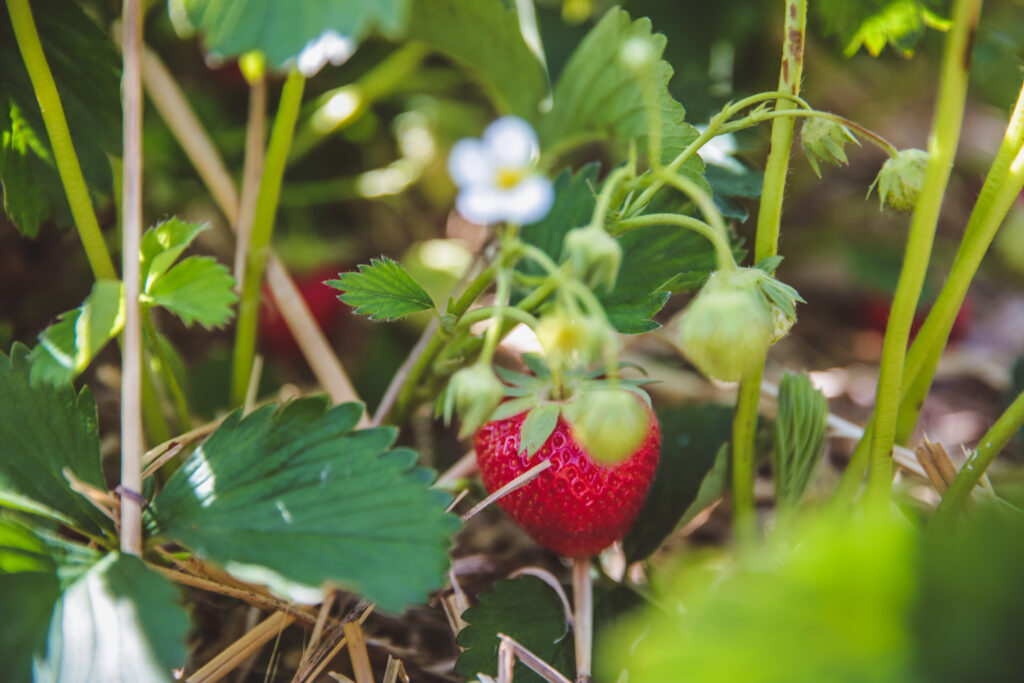Summary of Enhancing yield, physiological and quality traits of strawberry cultivated under organic management by applying different non-microbial biostimulants.
Non-microbial biostimulants: a sustainable approach for strawberry crops
Non-microbial biostimulants are gaining attention as a sustainable strategy to enhance strawberry crop productivity while reducing environmental impacts. The overuse of agrochemicals in modern agriculture has caused soil degradation, pollution, and health risks. As a result, organic farming, which avoids synthetic inputs, has become a preferred alternative. Nevertheless, achieving high yields in organic systems remains a challenge. To overcome this limitation, researchers are investigating how these biostimulants can improve growth, yield, and overall plant performance in strawberry cultivation.
Effects of biostimulants on growth and physiology
Recent studies demonstrate that applying biostimulants in strawberry crops can significantly improve physiological and nutritional parameters. In a greenhouse experiment, three types of products—a seaweed extract, a vegetable protein hydrolysate, and a plant-derived extract—were tested on strawberry plants (Fragaria × ananassa Duch.). The research measured fruit yield, mineral content, and photosynthetic efficiency, providing a detailed understanding of how these treatments influence plant performance under organic conditions.
Key outcomes: yield, minerals, and antioxidants
Overall, the application of biostimulants enhanced photosynthetic activity and plant vigor. Among the products, vegetable protein hydrolysate produced the most remarkable results, increasing fruit yield by 13.5% and improving mineral accumulation. In contrast, the seaweed-based extract primarily enhanced antioxidant capacity, showing that different biostimulants trigger specific physiological responses in strawberries.
Strategic use of non-microbial biostimulants in organic farming
These findings indicate that biostimulants are not one-size-fits-all; each type offers unique benefits that organic growers can leverage. By carefully selecting the most suitable product, farmers can optimize both yield and fruit quality. Ultimately, the study highlights non-microbial biostimulants as an effective and environmentally friendly tool to boost productivity, support plant health, and promote sustainable strawberry farming.
Publication: Plants









